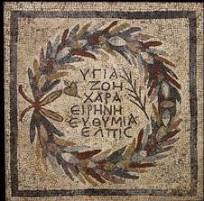 Each New Year brings with it new resolutions that we try to keep so that we can improve ourselves, but somehow never manage to do so. As we get older, we tend to make fewer resolutions compared to when we were younger. Do we just give up or do we know that we won’t try to keep them?
Each New Year brings with it new resolutions that we try to keep so that we can improve ourselves, but somehow never manage to do so. As we get older, we tend to make fewer resolutions compared to when we were younger. Do we just give up or do we know that we won’t try to keep them?
New Year Wishes from an ancient Greek mosaic floor, Halicarnassus, 4th c. A.D. (Health, Life (Longevity), Joy, Peace, Contentment, Hope)
The concept of New Year resolutions is not something new. It is an ancient practice where the coming of the New Year was an opportunity to wipe the slate clean and start again.
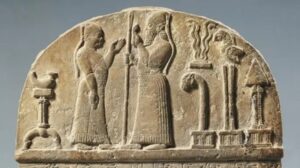 In Mesopotamia, today’s Iraq, the Babylonians around 4,000 years ago, recorded civilization’s first New Year celebration. To the ancient Babylonians, New Year’s resolutions and traditions were motivated by external influences. During the 12-day New Year festival, known as Akitu, new kings were crowned, or loyalty was sworn to existing monarchs. Crops were sown and promises to the gods were made to repay debts and return borrowed items. This festival took place in mid-March when the crops were planted and not in January. The festival was revived in the 1960’s and continues to this day with great success.
In Mesopotamia, today’s Iraq, the Babylonians around 4,000 years ago, recorded civilization’s first New Year celebration. To the ancient Babylonians, New Year’s resolutions and traditions were motivated by external influences. During the 12-day New Year festival, known as Akitu, new kings were crowned, or loyalty was sworn to existing monarchs. Crops were sown and promises to the gods were made to repay debts and return borrowed items. This festival took place in mid-March when the crops were planted and not in January. The festival was revived in the 1960’s and continues to this day with great success.
In ancient Greece, achieving goals was very important. This was known as Telos (end, purpose, or goal). Telos involved self-reflection, where a person would ponder on their misgivings and organize a plan to improve their behaviour or outlook on life. Some goals were fairly easy to achieve, such as being kinder to one’s friends, whereas some goals could take a lifetime to achieve, such as finding one’s purpose in life. Such goals can include admitting your own ignorance, realizing that you can change, and that you are not all theory and no action. Reading the ancient philosophers helps us to better understand who we are and what we can achieve.
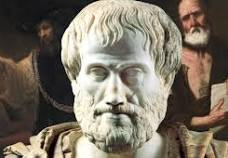
Ancient Greek philosophers such as Aristotle (384-322 BC), also Alexander the Great’s teacher, believed that people can change their character although the actual character type cannot change. As the formation of one’s character involves actions, words, and personality, what we say or do moves us closer or further away from the person we want to be. We have control over our behaviour and therefore if we choose to do good things, our character will improve. This does not mean that our character or habits can be changed overnight, but even the smallest step will move us closer to our goals, making them easier to achieve. The Nicomachean Ethics (Greek: Ηθικά Νικομάχεια) is Aristotle’s best-known work on ethics: the concept of right or wrong behaviour, which is the goal of all our actions.
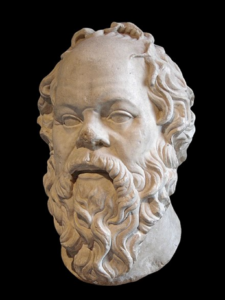 Another well-known philosopher, Socrates (c.470–399 BC), stated that what he knew was that he knew nothing. By realizing our self-ignorance, we inspire empathy and encourage humility and through this, deepen our knowledge. When starting something new, everyone is a beginner. No matter how old you are or how many years you have spent studying or doing something, starting something new makes you a student once again. Therefore, by acknowledging the fact that you will make mistakes as you proceed, you will use those experiences to expand your knowledge.
Another well-known philosopher, Socrates (c.470–399 BC), stated that what he knew was that he knew nothing. By realizing our self-ignorance, we inspire empathy and encourage humility and through this, deepen our knowledge. When starting something new, everyone is a beginner. No matter how old you are or how many years you have spent studying or doing something, starting something new makes you a student once again. Therefore, by acknowledging the fact that you will make mistakes as you proceed, you will use those experiences to expand your knowledge.
During the Roman Empire, January 1 was established as the beginning of the new year when Julius Caesar, the Roman emperor, proposed it in 46 BC. January is named after the Roman god Janus. This two-faced god, who keeps one face turned to the past and one turned to the future, represents our desire to build for the future and make amends for the past mistakes. He is the god of beginnings, gates, transitions, time, passages, and endings. The Romans offered sacrifices to the god and made promises of good behaviour for the coming year.
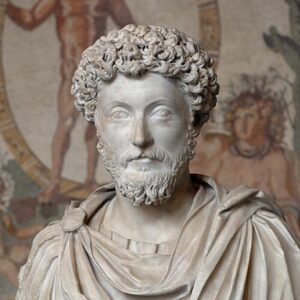 Marcus Aurelius, a Roman emperor from 161 to 180 AD and philosopher stated, “If a thing is humanly possible, consider it within your reach.” He had Greek tutors, which influenced his thinking and outlook on life and indicates the importance of the Greek language within the Roman empire. He wrote Meditations (Greek: things to one’s self), a series of 12 books, as a source for his own guidance and self-improvement in Greek. It gives a lot of practical advice on how to stick to your goals in the form of quotes. The central theme in the journals is the importance of analyzing one’s judgement of self and others and developing a cosmic perspective. He believes that there is no point setting a resolution unless you are going to apply it in your life. He maintains that a person should be focused on what he does and not to become distracted while at the same time maintaining strong ethical principles.
Marcus Aurelius, a Roman emperor from 161 to 180 AD and philosopher stated, “If a thing is humanly possible, consider it within your reach.” He had Greek tutors, which influenced his thinking and outlook on life and indicates the importance of the Greek language within the Roman empire. He wrote Meditations (Greek: things to one’s self), a series of 12 books, as a source for his own guidance and self-improvement in Greek. It gives a lot of practical advice on how to stick to your goals in the form of quotes. The central theme in the journals is the importance of analyzing one’s judgement of self and others and developing a cosmic perspective. He believes that there is no point setting a resolution unless you are going to apply it in your life. He maintains that a person should be focused on what he does and not to become distracted while at the same time maintaining strong ethical principles.
Some of the quotes by Marcus Aurelius are:
- “You have power over your mind – not outside events. Realize this, and you will find strength.”
- “The happiness of your life depends upon the quality of your thoughts.”
- “Waste no more time arguing about what a good man should be. Be one.”
Early Christians began to associate the first day of the New Year with the opportunity to reflect on one’s past mistakes and to resolve to do better in the future. New Year services were held with readings from the scriptures and singing of hymns. This served as a spiritual event, which celebrated the coming of the New Year.
So, this year, why not start off with a clean slate and make the attempt to be more resolute in achieving your goals. By practicing what we learn we become more resilient and stronger in keeping our resolutions and therefore reaching our goals. Such endeavours are not easy, but they are certainly worthwhile.